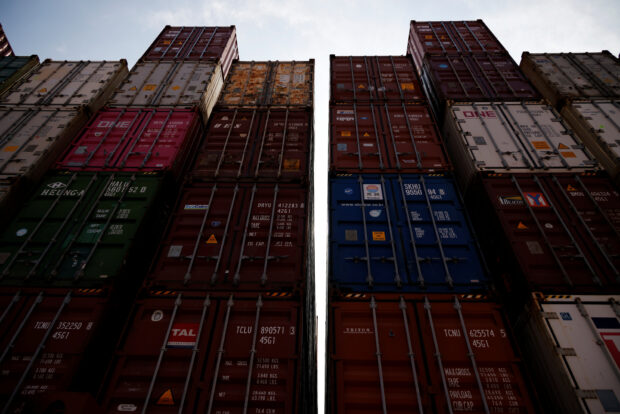
Shipping containers are stacked at Pusan Newport Terminal in Busan, South Korea, July 1, 2021. REUTERS/Kim Hong-Ji/File photo
SEOUL -South Korea’s economy sped up faster than expected in the second quarter, flattered by headline improvements in trade although weaker consumer and business spending add to the case for the central bank to loosen its restrictive monetary policy.
Gross domestic product (GDP) grew by a seasonally adjusted 0.6 percent in April-June on a quarterly basis, according to preliminary estimates from the Bank of Korea, after a 0.3- percent increase in the preceding three months.
It beat the median 0.5 percent rise forecast in a Reuters survey of economists and marked the biggest quarterly growth since the second quarter of 2022.
Exports fell 1.8 percent, but imports dropped at a much faster rate of 4.2 percent, bringing a net growth contribution of positive 1.3 percentage points to the heavily trade-reliant economy.
READ: South Korea exports fall for 8th straight month as chip slump continues
“Qualitatively, it is not so positive as the headline figure indicates,” said Park Sang-hyun, chief economist at HI Investment Securities.
“Growth will improve going forward, but it is too early to talk about recovery, as a sluggish Chinese economy may delay the recovery of exports that are already weaker than previously expected.”
Private consumption as well as facility and construction investments were all weaker than the quarter before, down 0.1 percent, 0.2 percent and 0.3 percent, respectively, while government spending dropped 1.9 percent, the biggest since early 1997.
GDP for the quarter was 0.9 percent higher than the same quarter the year before, compared with an expansion of 0.9 percent in the January-March quarter and a 0.8 percent increase expected by economists.
READ: South Korea economy averts recession but faces strong headwinds
Asia’s fourth-largest economy is expected to grow 1.4 percent in 2023, down from 2.6 percent in 2022, according to the latest forecasts by the central bank and the government.
“The upshot is that the central bank, enabled by falling inflation, is likely to step in to support the economy by loosening monetary policy in the coming months,” said Shivaan Tandon, emerging Asia economist at Capital Economics.

